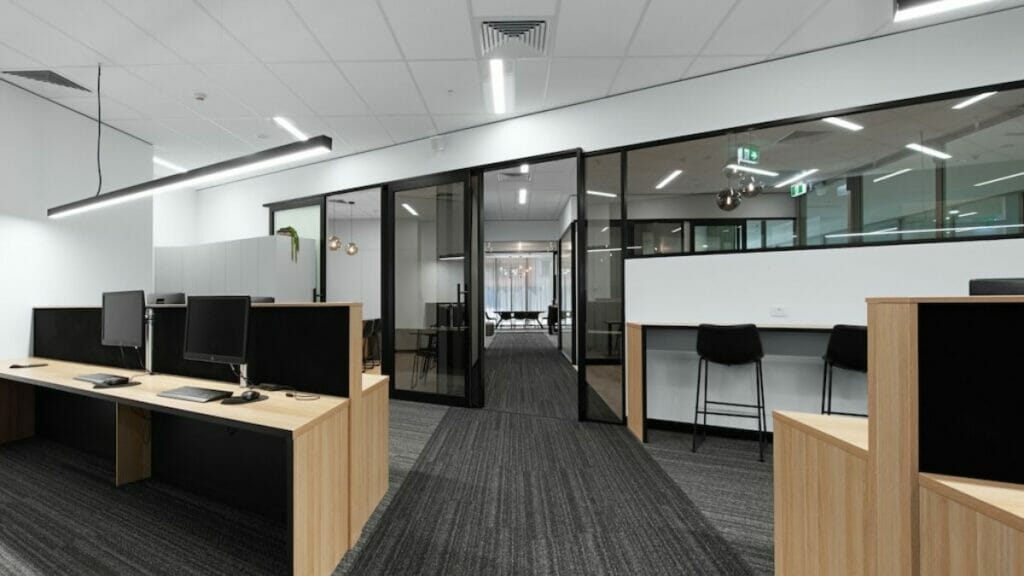Investing in a commercial property is a great way to earn passive income, as it has great potential to give you impressive returns.
Commercial properties offer high yields compared to residential investments, helping you build annual rental increases.
In this article, we will discuss why you should consider commercial property investments, their benefits, and how to find one in Australia.
Contents
Is It Worth Investing in Commercial Property?
Yes, commercial properties help generate profit in many ways.
For instance, you could be running a hotel or an office space that is occupied year-round. In Australia, there are various types of commercial properties such as offices, retail stores, industrial buildings, medical facilities or clinics, restaurants, short-term accommodation and more.
Let’s take a closer look.
Get A Rental Property Appraisal
Maximise the potential of your property investment
Benefits of Investing in Commercial Property
- Great returns: Commercial properties provide continuous financial benefits, both in capital gain and income.
- Consistent income: Commercial properties rarely depreciate over time as the returns can fluctuate considerably less than shares.
- Low-risk option: Commercial properties have less volatility in their value compared to other forms of investment.
- Excellent tax benefits: Commercial properties offer substantial depreciation rates by attracting building allowances.
- Better investment control: Commercial properties (if owned by you) can be upgraded or developed to improve your investment.
- Value for money: Commercial properties add value to your rental income, especially once they’re renovated or redeveloped.
Types of Commercial Properties
Depending on the asset class, commercial properties bring forth their own set of risks and rewards, often being subject to economic trends. Unlike residential real estate, common types of commercial spaces in Australia ensure longer leases and higher yields.
Offices for Lease
Such commercial spaces can range from small suburban offices to an entire tower, often located close to transport networks. The end goal of an office is to facilitate and encourage a safe, healthy, and productive work environment.
A high-value office will likely have access to retail and food amenities close by and provide or be close to ample parking for employees. Additionally, office spaces should be designed in a way to increase efficiency with good ventilation and acoustics.
If you’re investing in a commercial property that has to be rented out as an office space, ensure it accommodates teams of all sizes. It should be well-furnished, offering the perfect ambience to host meetings and organise events.
Retail Store
The retail sector invites many opportunities for investors, offering a range of options that include shops, malls, and more. The retail sector depends on many factors like income growth, interest rates, and tenancy availability.
High-quality retail properties offer access to transport, ample parking, and aesthetics that are visible from the main road. For instance, malls are the most common commercial properties to consider as they’re located in affluent locations.
For this reason, most retail stores are positioned in high-growth locations, well-maintained by tenants who function on lease terms. Retail properties often feature zoning options, offering multi-tenant opportunities for high returns.
Industrial Spaces
Industrial properties could be anything from a chemical plant to a manufacturing factory, often varying in size. A prime consideration for such commercial properties is their proximity to road networks like freeways, highways, and motorways.
The property should also have access to metropolitan areas, food retailers and other facilities within a populated space. Industrial units can also include external loading docks that provide vehicular access, water usage, and suitable acoustics.
Ensure you get in touch with an expert to conduct a proper environmental survey associated with the property, as an industrial property can impact the environmental surroundings.
Specialty Business
Specialty commercial properties can include a variety of businesses, including childcare centres, sports centres, and hospitality venues, and they are often dependent on funding or the state of the economy. Such properties are not easy to find as they demand high-quality care and maintenance.
Best examples of specialty properties include stadiums, theatres, amusement parks, parking lots, bowling alleys, and more. Such businesses focus on singular concepts, providing facilities that cater to a certain audience.
How to Invest in Commercial Property
With interest rates booming through Australian real estate, it’s important to settle on a high-quality investment if you’re looking for returns. Though most investors prefer residential property as their first investment, commercial spaces offer better profits.
If you’re looking for consistent yield, investing in commercial property is a better alternative though you have to consider many factors along the way. Values of commercial properties are often driven by rental returns or their potential for capital gains.
For instance, calculating rental yield as per the market volatility, noting that yields will vary based on the location and the property’s redevelopment potential. But a stable economy is key to increased property values, often driven by financial growth.
Here’s what you need to consider when looking for commercial real estate in Australia.
Do Considerable Market Research
Understanding what kind of real estate market you’re stepping into is a must when you’re aiming for capital growth. Commercial property investments respond to changes in commercial infrastructure, market growth, and governing regulations.
Settle at the Right Location
To select the right area for commercial property investment, you need to understand your target market and demand in the location. You should also check out the developer credentials for quality property management. A property’s proximity to public transport and major amenities must match its commercial requirements.
Do a Proper Risk Assessment
To manage risks in a commercial property investment, decide the type of asset you’re interested in, may it be healthcare or retail. This helps determine risk and return, though it varies depending on the type of asset you own.
For instance, retail properties offer high turnover in the form of rental income, applicable as lease agreements. In contrast, hotels don’t provide the same income or certainty as they’re vulnerable to changing economic trends.
Calculate the Current Investment Yield
Yield refers to the total profits your investment is capable of generating over time, taking the current income and property price into consideration. A good yield for a commercial property typically falls between 5% to 12% yearly, which can be significantly higher than what a residential property can provide to real estate investors.
Get in touch with an expert who’s familiar with the commercial property market and explore leasing strategies. Such professionals help determine the market yield of a commercial property, giving you a range of options. They also provide cost-effective property management services, handling all your maintenance requests.
Find Quality Commercial Tenants
Finding quality tenants requires advertising your space to the right target audience. Most commercial property investors evaluate prospective tenants by checking their rental history (if any), the financial health of the business, and more. This will help determine whether the tenant is likely to stay for longer periods. Working with an experienced property manager can assist you in finding the best possible tenants.
Secure the Right Lease Terms and Conditions
Whether you own commercial or residential properties, setting the right terms and conditions in a lease agreement is essential. Such information should include methods of rental payment, review, and frequency, plus the legal obligations of both the owner and tenant. Speak to a commercial property professional to learn more about commercial lease terms, asset classes, and more.
Key Takeaways
- Commercial properties offer high returns and consistent income, with less volatility compared to other investments.
- They include offices, retail stores, industrial buildings, and specialty businesses, each with unique benefits and risks.
- Key investment considerations include location, economic trends, property type, and lease terms.
- Successful commercial property investment requires market research, risk assessment, and finding quality tenants.
- Calculating current investment yield and securing favorable lease terms are critical steps.
Looking for Commercial Properties Online?
If you’re seeking a commercial investment property, talk to our experts!
Leah Jay deals with commercial property management and procurement for small to large-scale businesses and companies in Australia.
Our expert team has experience with the commercial real estate landscape and would be happy to assist you by answering all your queries. We can also provide you with a comparative market analysis report to simplify your investment experience.
For commercial property management services, call us today.


